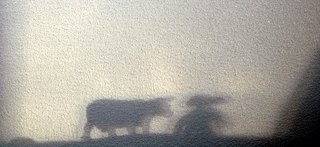 On coiled springs and reflective capability
On coiled springs and reflective capability
In an interview of Chick Corea's Electric band, drummer Dave Weckl was described by the magazine (Downbeat) as a 'coiled spring'. When a roadie passed by and met the drummer's gaze, Weckl was immediately handed a pair of sticks and he immeditely began playing patterns on his knees.
Lately, I have felt the same coiled spring effect. As the season is coming to an end, things tend to pile up. I become nervous and tense. On moments like this, I tend to lose any capability to reflect. This, I think, also means that you hand out a valuable aspect in your life. At EGOS last summer, my fiend and colleague
Wendelin told me that every evening, he spends some time reflecting on the day. I find the practice of making time like that very compelling, yet how you find such a mood utterly escapes me, being the wound-up father of two that I am.
There are moments where reflection is enabled more easily, such as jogging or strolling, particularly when I am alone in a foreign environment. Indeed, strolling in a foreign environment "to get the feel of the place" is the absolute opposite to the frenetic "taxi from the airport" -type of life one often experiences abroad, a combination of security and disconnectedness. This was another important insight I got from Wendelin, getting a feel of a place by getting involved in it, walking through it.
Recently, a friend commented this blog ( - and I thought I was yelling into the emptiness of the cyberspace -), asking whether I always have such a placid state of mind, calm and composed. He said that he gets a sense of peace by reading this blog. I was really surprised about this - in a sense I have had the most hectic autumn that I've had in a long time, with the birth of our son, moving, changing jobs, and so on. Then I realized, that indeed, writing this blog is a way to stop and reflect, summarizing and narrativizing the chaos going through my consciousness.
Maybe this is indeed a more general aspect to blogs: people seem to appear more calm and composed in their blogs. As such, they are wonderful channels for everyday escapism for readers, as you get to share some of that sense of calm when you tap into somebody else's process.






